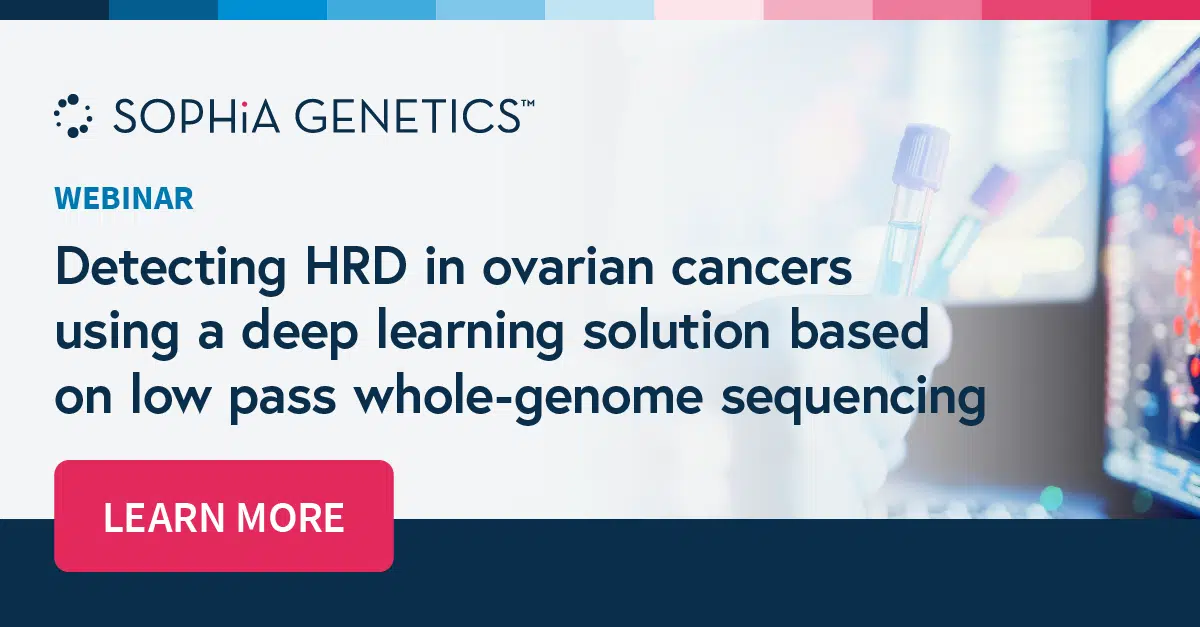About
Deficiency in the homologous recombination repair system represent up to 50% of the ovarian, breast, prostate and pancreatic cancers. While Poly ADP-ribose polymerase inhibitors (PARPi) treatment revolutionized management of patients, inducing synthetic lethality in cells with homologous recombination deficiency (HRD), detection of HRD is challenging. Indeed, homologous recombination repair (HRR) genetic testing do not suffice to determine with certainty HRD status and researchers use the indirect genomic instability score to evaluate genomic scars or mutational signatures resulting from HRD. The implementation of methods able to detect HRD is crucial for the identification of patients who could benefit from treatment with PARPi.
In this webinar, Pr. Harlé will share his experience in HRD detection on ovarian cancers using SOPHiA GENETICS deep learning solution.
Therefore, you will have the opportunity to discover:
– Current challenges for the implementation of HRD testing
– The analytical performance evaluation of the Genomic Integrity Index (GII) provided by the SOPHiA DDM HRD Solution
– The concordance of the HRD status obtained by GII with that obtained from standard method
Presenter
Dr. Alexandre Harlé Biologist/Professor of theliquid biopsy and tumour heterogeneity group at Institut de Cancérologie de Lorraine-Alexis Vautrin, Nancy, France
Pr. Harlé earned his doctoral degree in 2014 with a specialization in Oncology and biomarkers from the University of Lorraine, Nancy, France. He is now laboratory head of the liquid biopsy and tumour heterogeneity group and biologist at Institut de Cancérologie de Lorraine-Alexis Vautrin, Nancy, France.
His team has led the development and validation of numerous PCR and NGS assays for the detection of circulating tumour DNA in solid tumours for theragnostic, patient follow-up and minimal residual disease. His group is also involved in the analysis of solid tumours to decipher tumour heterogeneity and genomic instability.
SOPHiA GENETICS products are for Research Use Only and not for use in diagnostic procedures unless specified otherwise.
